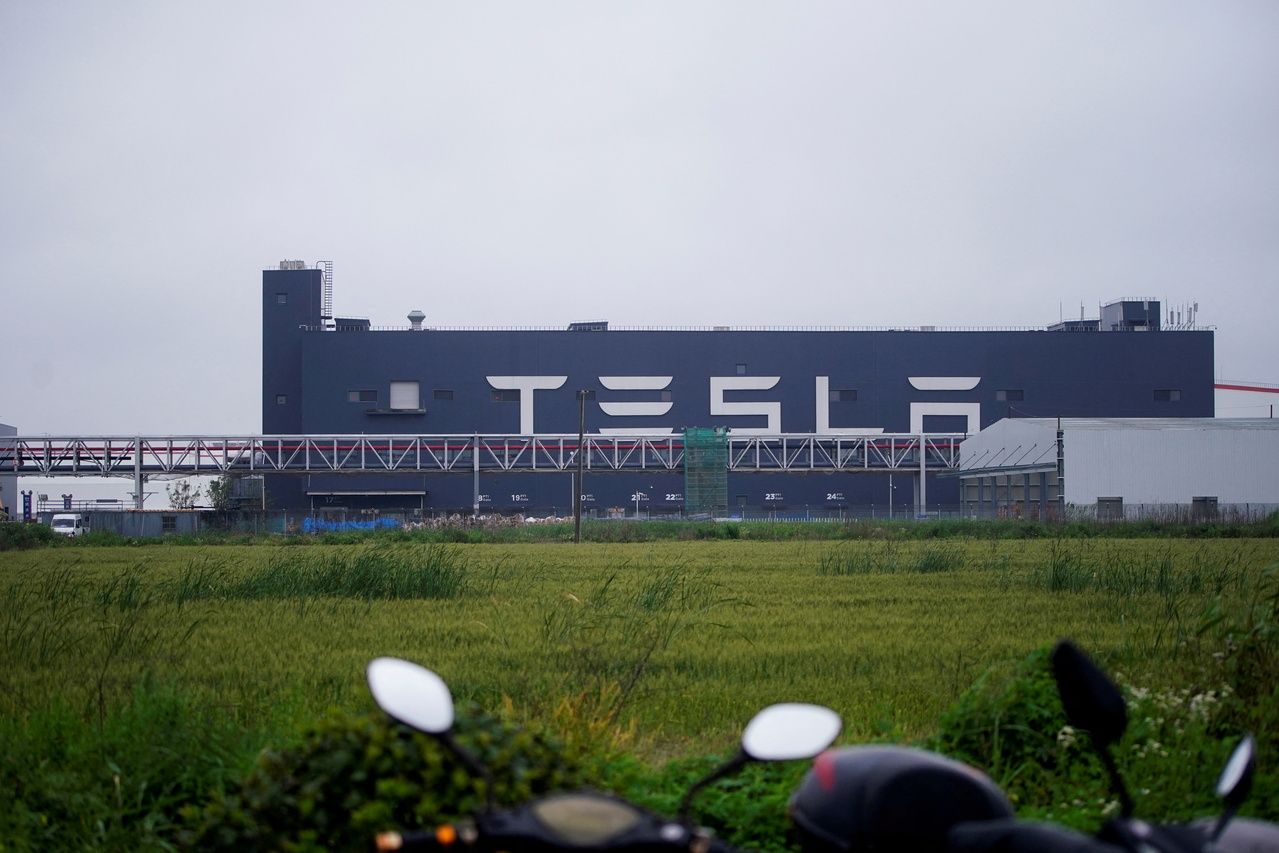Tesla staring down 40,000 lost EVs due to Shanghai lockdown
Sign up now: Get ST's newsletters delivered to your inbox

Shanghai's lockdown forced Tesla to halt production in late March.
PHOTO: REUTERS
SHANGHAI (BLOOMBERG) - For the first time, Tesla has hit a real production snag in China. The electric-vehicle maker's Shanghai plant, its first outside the United States, has had output suspended for almost three weeks due to citywide lockdowns in China's financial heart. At a run rate of about 2,100 cars a day, that is around 39,900 units lost since the lines fell silent on March 28.
There are few signs as to when the situation might change. The city of 25 million is posting record Covid-19 cases almost daily and much of the city remains under restrictions of movement, with ongoing disruptions to food and manufacturing supply chains.
All Chinese automakers may have to halt production in May if shutdowns persist in the Shanghai area, according to Mr He Xiaopeng, chief executive officer of EV firm Xpeng.
The lockdown, now in its third week, has battered the economy and stalled production, prompting Premier Li Keqiang to warn about economic growth risks multiple times.
Mr He posted on his personal WeChat and Weibo accounts on Thursday evening (April 14) that if supply chain companies cannot find a way to resume operation and production, it is likely that all Chinese original equipment manufacturers "may have to suspend production in May", referring to automakers.
Ms Junheng Li, founder and chief executive of JL Warren Capital, an equity research firm focused on Chinese companies, said of Tesla: "Our base case estimate for reopening is the first week in May."
Under that scenario, she estimated that some 84,000 units may be lost. Ms Li said Tesla's production losses may be even steeper if surrounding cities were to be locked down too, potentially impacting the supply of auto parts to the factory. The plant's reopening may also be done in sequenced stages, and capacity after any resumption will "depend on the supply of components Tesla can get".
Texas-based Tesla made 305,000 vehicles in the fourth quarter globally, so a loss of around 40,000 cars is about 13 per cent of that. Its Shanghai factory on the eastern outskirts of the city makes the Model 3 and the Model Y for both export and domestic consumption.
The plant typically produces roughly 2,000 cars a day, based on losses seen during the first quarter, according to an estimate earlier this month by Mr Dan Ives, an analyst at Wedbush Securities.
Shanghai's lockdown forced Tesla to halt production in late March. The carmaker has begun canvassing some staff to see whether it is possible to operate under a so-called closed-loop system, were they able to leave their apartments, people familiar with the matter said on Thursday.
Some other big manufacturers, including Volkswagen and Robert Bosch, have moved to a version of the loop system, whereby workers live on-site and are tested regularly. It has not particularly worked out for Volkswagen in Shanghai, with locked-in workers unable to produce cars anyway due to a lack of parts coming into the factory.
"China's insistence on zero Covid-19 has caused, and will cause, more multinationals to rethink their strategies in China," Ms Li said. "As long as Covid-19 mutations continue, and China does not give up on Covid-19-zero, I believe that they will cut or halt their expansion plans in the country," she said, referring to companies in general rather than Tesla specifically.
Tesla's Shanghai factory churned out 182,174 vehicles in the first quarter, China Passenger Car Association data showed. Since the production lines first fired up in late 2019, this most recent production hiatus has been the longest - worse than when Covid-19 first hit in 2020 and much worse than the odd chip shortage that has forced two- or three-day suspensions in the past months.
The factory usually runs for six or seven days a week over three shifts, depending on maintenance arrangements, and ramping production back up from a shutdown is not an instant process.


